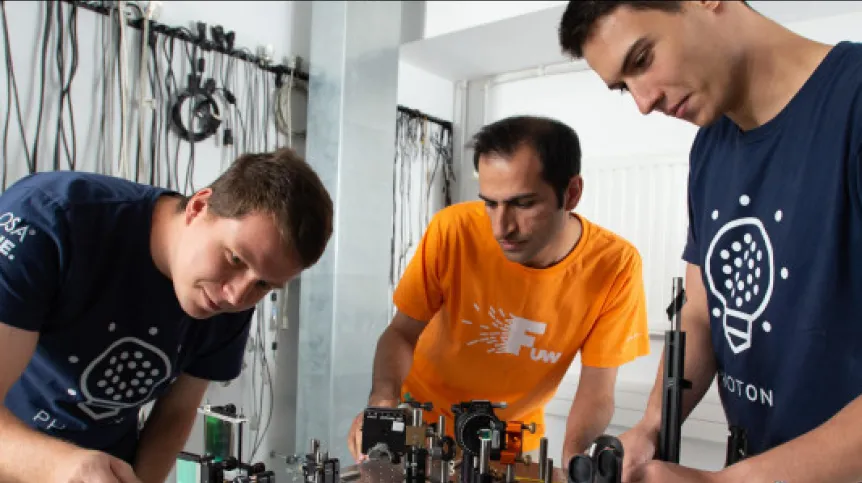
Researchers from two Polish centres have launched two encryption systems based on the principles of quantum mechanics preventing data transmission being intercepted without the rightful recipient's knowledge.
As part of the National Laboratory for Photonics and Quantum Technologies (NLPQT), scientists from the University of Warsaw and the Poznan Supercomputing and Networking Center (PSNC), launched the two quantum key distribution (QKD) systems.
Used to encrypt information based on the principles of quantum mechanics, as a result it is impossible to intercept encrypted messages without alerting the parties that have created the cryptographic key. It is the perfect way to send any confidential information - be it medical, banking or patent data.
Adam Widomski, a PhD student at the Faculty of Physics at the University of Warsaw, said: “QKD involves an exchange of hacker-resistant cryptographic keys that both encrypt and decrypt messages. They can then be used for symmetric encryption, which means that both encryption and decryption use the same key. Information carriers in the form of key bits are single photons, light particles that exhibit quantum properties and can be transmitted via optical fibres.”
The first tests were carried out within the PSNC headquarters, and then the existing Poznań fibre optic infrastructure was used to securely transmit and receive a quantum encrypted signal between two PSNC units 7 kilometres apart. Researchers used a network of dark fibres, optical fibres that currently do not carry any network traffic. Other PSNC research devices will also be adapted to the created connection, the University of Warsaw reports.
The experiments guarantee the correct operation of the QKD system within 70 kilometres from the transmitter. In the next two years, the scientists working in the NLPQT project plan to build a connection of this type between Poznań and Warsaw.
NLPQT - the National Laboratory of Photonics and Quantum Technologies - brings together seven of the best scientific research units in Poland. The consortium leader is the Faculty of Physics of the University of Warsaw. For more information about the NLPQT project, visit: nlpqt.fuw.edu.pl/en/
Find out more at: https://www.uw.edu.pl/szyfry-niemozliwe-do-zlamania/
PAP - Science in Poland
mat/ ekr/ kap/
tr. RL













